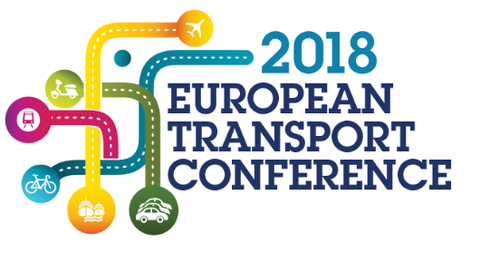Oct 25, 2018
Presentation at the European Transport Conference 2018

This year's ETC took place in Dublin, Ireland.
At this year's European Transport Conference in Dublin, which is organised annually by the Association of European Transport, Benjamin Maas from the Centre of Car Business Management presented results from a research project on the demand-oriented development of combined mobility offers.
A total of 600 participants from numerous countries took part in the international conference and presented current research results from all areas of mobility research in more than 300 presentations. The Centr of Car Business Management, represented by Benjamin Maas, presented the results of a survey conducted last November and December in Dresden. More than 400 respondents took part in the survey and indicated their individual preferences with regard to combined mobility offers. These combinations were based on available modes of transport and included contingents for public transport, car sharing, bike sharing and taxi. By means of a conjoint analysis, it was then possible to determine which components of the mobility services had the greatest influence on the preferences of the users. By means of a cluster analysis, the test persons could also be assigned to specific user groups that have homogeneous demands on the mobility packages. This significantly simplifies the creation of offers for providers.
The analysis showed the outstanding importance of public transport for the mobility packages. All identified mobility types preferred packages which contain at least one usage quota for public transport or a monthly ticket for free use. By adding further components such as car sharing, bike sharing or taxi to the public transport system, it was possible to increase the benefits realised for each type of mobility at adjusted prices. The packages were therefore more attractive than the individual offers of the providers because they combined different modes of transport. The results thus support the basic idea of Mobility-as-a-Service that the attractiveness of shared mobility can be increased by linking different mobility offers. Combined mobility packages can thus contribute to car-free or reduced-traffic cities.
The conference in Dublin offered numerous opportunities for exchange with other researchers and practical partners in the field of mobility research. The main topic was the reduction of motorised individual traffic in cities and the numerous ways in which this can be achieved. However, the car as the means of transport with the greatest degrees of freedom will continue to play a decisive role in individual mobility in the future, although usage and ownership scenarios will change massively.
Translated with www.DeepL.com/Translator
